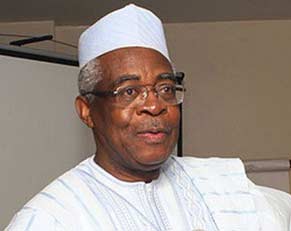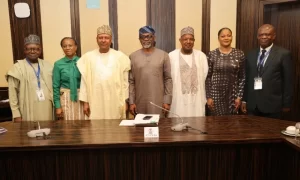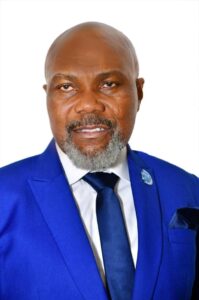
OYEDELE SETS THE RECORD STRAIGHT: VAT BILL DOESN’T CONFLICT WITH RMAFC’S FUNCTIONS
This page is supported by Shell Nigeria. Click here for more information
GREATRIBUNETVNEWS–Dr. Taiwo Oyedele, Chairman of the Presidential Committee on Fiscal Policy and Tax Reforms, has clarified that the Value Added Tax (VAT) Bill before the National Assembly doesn’t contain provisions that conflict with the Revenue Mobilisation Allocation and Fiscal Commission’s (RMAFC) statutory functions.
“The VAT Bill is designed to ensure transparency and accountability in the administration of VAT proceeds,” Oyedele said at a one-day roundtable on the tax reform bills organised by the National Institute for Legislative and Democratic Studies (NILDS) in Abuja.
He reassured that the proposed tax reforms specify how VAT proceeds will be spent, preventing mismanagement by sub-regional governments. “We have taken care to ensure that the VAT proceeds are utilized for the benefit of all Nigerians, and not just a select few,” Oyedele added.
Oyedele emphasized that RMAFC has no role in VAT administration since it’s not part of revenues captured in the constitution. “RMAFC’s functions are clearly defined in the constitution, and VAT administration is not within their purview,” he stated.
This clarification comes after RMAFC Chairman Shehu Bello sent a memorandum to the National Assembly earlier in the week, raising concerns about the Tax Reform Bill. Bello had argued that the bill conflicted with RMAFC’s statutory functions.
Oyedele said those insinuating that the committee did not carry RMAFC along have not studied the constitution very well
He stressed: “The role of RMAFC is to determine formulas for distributing revenue. Our view is that VAT is not in the constitution. Section 162 of the constitution that speaks to the role of the RMAFC as advisory is focusing on Federation revenue. So, this VAT is actually state revenue. That’s why when the military decreed it in 1993, it replaced the sales tax that states were collecting.
“That is the reason why VAT does not go to special pool accounts. Then, we shared it with states and their local government.
“The Federal Government keeps a small portion for administering needs and also recognising that if we were to collect VAT by state level, the Federal Government would be entitled to import VAT, International VAT,and interstate VAT.
In fact, we have started collecting VAT at state level,you know the biggest winner will be Federal Government. The Federal Government will keep more than half of the VAT we are collecting today. ”
He said the proposed bills banned the FIRS from engaging tax consultants.
Oyedele added:”if the states are collecting VAT, the next winner will be tax consultants. ”
“The FIRS has no need whatsoever for consultants to be able to collect VAT.
Infact, inside those tax bills, there is a specific language that says the FIRS cannot hire consultants to do assessment, they cannot hire them to do collection, they cannot hire them to do any work that is a routine work of the tax officers ”
Senate President, Godwill Akpabio, who was represented by Senator Victor Umeh, at the session, said the tax Reform Bills represent a critical step forward in modernising the country’s tax system and a more equitable distribution of the tax burden among Nigerians
Akpabio said, Regrettably, the introduction of these bills has been met some misunderstanding and even polarisation by certain segments of our society. Don’t see this as a setback but rather as a testament to the growing democratic maturity of our nation.
” As people’s representatives, we must to assure our compatriots that the members of the National Assembly have heard your voices. Ww stand here, not for adversaries, but as partners in the quest to build the Nigeria of our dreams
We know that we have the unwavering trust of the Nigerian people, and we will never, ever, betray that sacred trust in the performance of our duties ”
However, Oyedele’s statement aims to alleviate fears and provide transparency on the VAT Bill’s provisions. “We are committed to ensuring that the tax reform bills are in the best interest of all Nigerians, and we will continue to engage with all stakeholders to ensure that their concerns are addressed,” he concluded.






